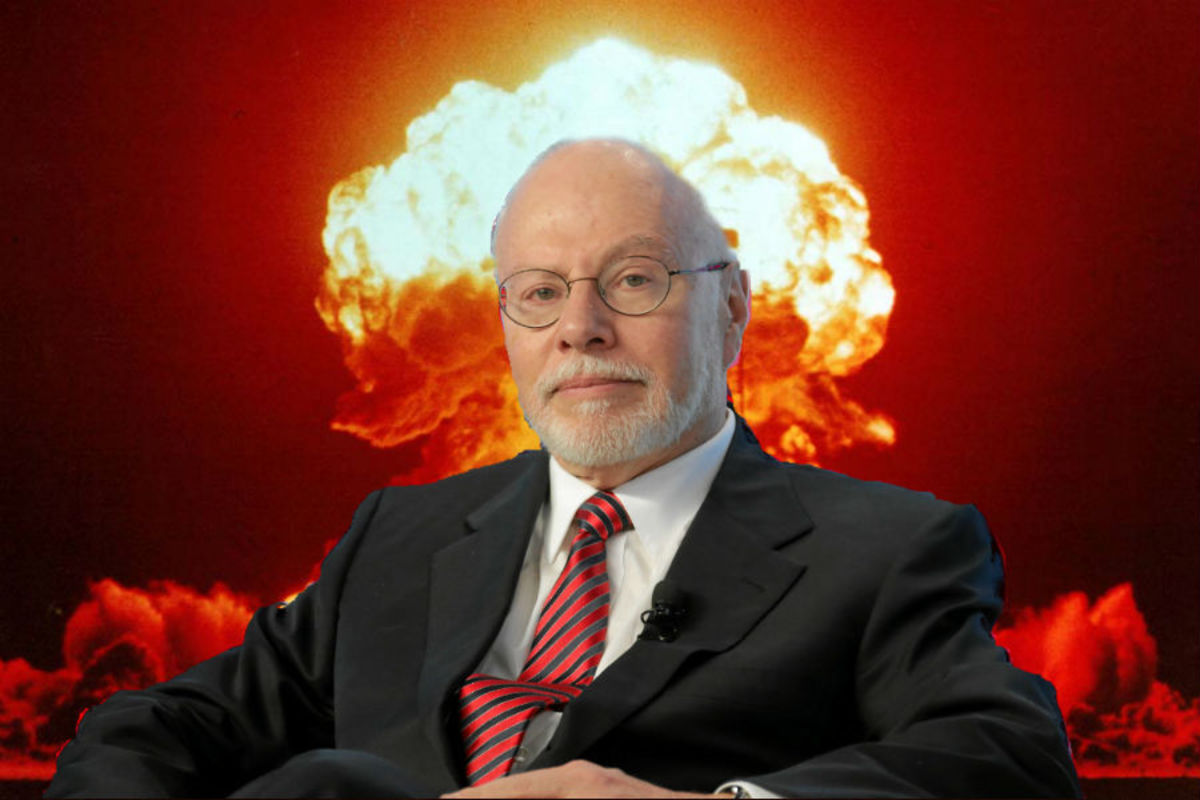Et tu, Centennial State?
Yes, home DNA kits are revealing all kinds of secrets we never expected. One of those secrets is that apparently it was all too common for doctors to claim to be using “anonymous” sperm — generally from a fabricated “medical student” — to assist patients with infertility. All the while, these male doctors were instead using their own, personal, freshly provided sperm to impregnate their patients.
Sadly, my own state of Colorado is the latest to uncover victims of this practice, and its own local perpetrator, Dr. Paul Jones of Grand Junction, Colorado. In a new lawsuit, attorney Patrick Fitz-Gerald — don’t forget the hyphen in his last name if you’re searching for this case by attorney name — alleges in Mesa County district court that four plaintiffs were the victims of this type of medical fraud. The defendants are Dr. Jones and his medical practice, Women’s Healthcare of Western Colorado, P.C.
Plaintiff Maia Emmons-Boring, like so many similarly situated plaintiffs, discovered through a home DNA kit that the man who raised her, and who she believed to be her biological father for the last 39 years of her life, was not, in fact, genetically related to her. Instead, she seemed to have numerous half siblings that she did not previously know. That led to her find out that, instead of the man she knew as dad, her mother’s doctor was both her and her sister’s biological father.
Emmons-Boring’s mother, Cheryl Emmons, explained the situation to her daughter, acknowledging that when she and Emmons-Boring’s father were unable to conceive, they sought the assistance of Dr. Jones. Dr. Jones informed the couple that he would use “fresh sperm” from an anonymous sperm donor in good health “who was either a medical student or law student.” (Despite the icky circumstances, I am proud to see that “law student” made the cut here as a proxy for “good genes.”) The complaint explains how Dr. Jones would not permit Cheryl Emmon’s spouse to be in the room during the procedure, but would instruct the couple to go home and “make love” that night, so that they could never really be sure whether the husband was the father to their child or not. *major eye roll*
Of course, with the advancement of medical technology and DNA testing, we can be oh-so sure now. And Emmons-Boring’s suit complains that Dr. Jones committed an act that, at the very least, should be subject to civil liability. The complaint, which includes Emmons-Boring, her sister, and her parents, seeks damages for medical negligence, lack of informed consent, fraud, negligent misrepresentation, breach of contract, battery, and extreme and outrageous conduct.
I spoke with Fitz-Gerald about his client’s case. Fitz-Gerald is also representing at least 11 other plaintiffs who may be victims of Dr. Jones’ shady medical practices. He expects to brings similar claims in those cases. Fitz-Gerald explained that they alerted the Attorney General of Colorado about the situation, and that just this past Friday, Dr. Jones voluntarily gave up his medical license. Despite this minor victory, Fitz-Gerald described how the victims are frustrated that Colorado law does not clearly define the doctor’s gross acts of deception as a crime. But that may soon change.
Colorado State Representative Kerry Tipper has been looking into the gaps in Colorado law in the reproductive technology field. Representative Tipper expects to propose new legislation in the upcoming session, starting in January 2020, to close those gaps. She explained to the Denver Post that her colleagues from both sides of the aisle were surprised to learn that this kind of behavior is not already unambiguously illegal in the state.
For his part, Fitz-Gerald expects that the fertility industry may not be a fan of new additional regulations, but noted that people’s lives and families are deeply affected in the most fundamental and devastating of ways by these scandals, and that they are currently without clear recourse under the law. Fitz-Gerald argued that it would be naïve to think that this is merely just a problem of the past, and that no doctor would do this kind of thing today.
The positive news is that Colorado can look to other states for successful fertility fraud legislation. This past year, both Texas and Indiana passed new laws to curb this type of behavior after each state discovered that it had its own bad-doctor problem. The podcast that I co-host has an excellent interview with a gross-doctor survivor, and the driving force behind the Texas legislation, Eve Wiley.
Texas passed a fertility fraud bill that added jail time to the books when a medical professional transfers reproductive cells to a non-consenting patient. Unfortunately, despite this progress, the Texas doctor who was specifically outed for this conduct continues to practice medicine, without any repercussions. In fact, the Texas Medical Board shockingly initially declined to investigate claims against Dr. Kim McMorries, despite his admissions that he had been using local sperm (like, very local, in that it was his own) to impregnate patients. However, last week the complainant, out-of-state expert Professor Jody L. Madeira, received news from the Texas Medical Board that its Disciplinary Process Review Committee voted to re-open the matter and would investigate the alleged violations of unprofessional and unethical conduct. That’s a positive step.
So, come on, Colorado. Here’s our chance to both call and raise Texas in the quest for better medical practices.
 Ellen Trachman is the Managing Attorney of Trachman Law Center, LLC, a Denver-based law firm specializing in assisted reproductive technology law, and co-host of the podcast I Want To Put A Baby In You. You can reach her at babies@abovethelaw.com.
Ellen Trachman is the Managing Attorney of Trachman Law Center, LLC, a Denver-based law firm specializing in assisted reproductive technology law, and co-host of the podcast I Want To Put A Baby In You. You can reach her at babies@abovethelaw.com.








 Kathryn Rubino is a Senior Editor at Above the Law, and host of
Kathryn Rubino is a Senior Editor at Above the Law, and host of 







 Scott Alan Burroughs, Esq. practices with
Scott Alan Burroughs, Esq. practices with